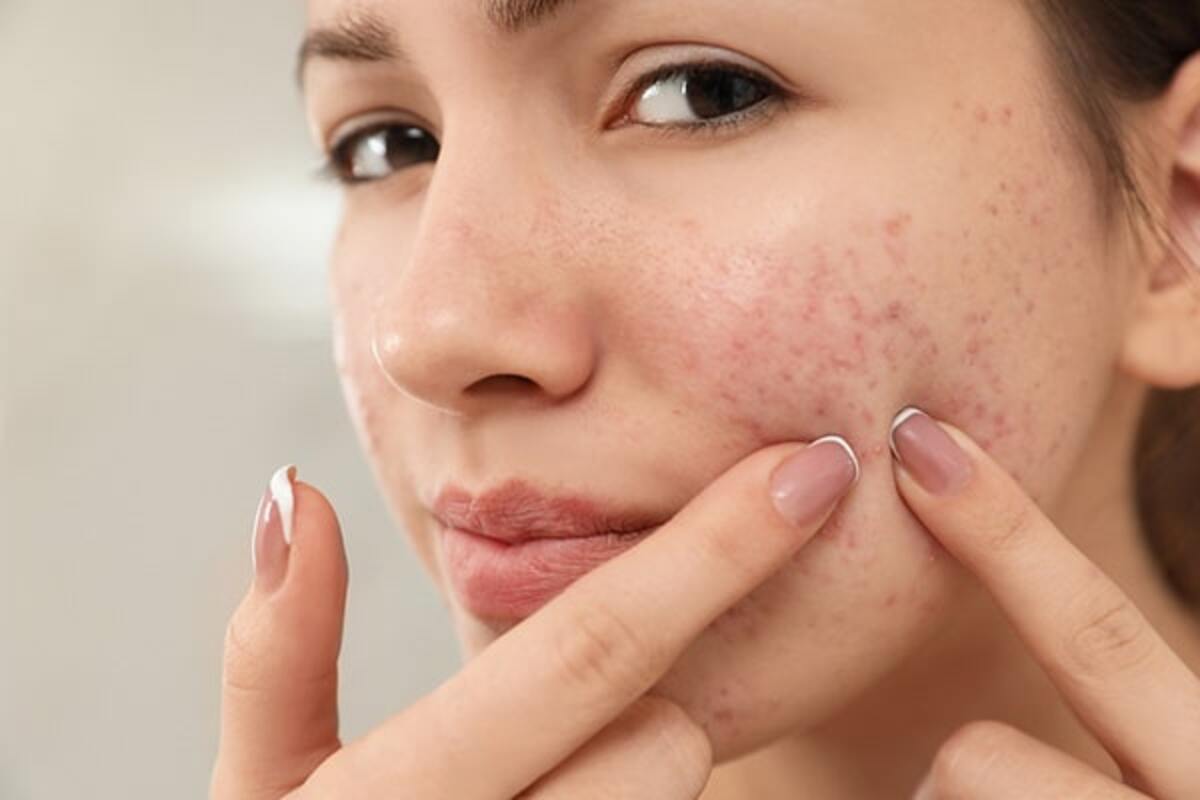Introduction
Pimples are pesky for everyone, but if you have sensitive skin, finding the right treatment can feel like navigating a minefield. Sensitive skin reacts easily to various triggers, making pimple treatments a delicate balancing act. In this guide, we'll explore what works best for treating pimples on sensitive skin, ensuring your skin stays calm and clear.
What is Sensitive Skin?
Characteristics of Sensitive Skin
Sensitive skin is prone to redness, irritation, and discomfort. It often reacts to environmental changes, skincare products, and even stress. If your skin stings, burns, or feels tight frequently, you likely have sensitive skin.
Common Triggers for Sensitive Skin
Common triggers include harsh chemicals, extreme weather conditions, stress, and certain skincare ingredients. Identifying and avoiding these triggers is crucial for maintaining healthy skin.
Causes of Pimples on Sensitive Skin
Hormonal Imbalances
Hormones can wreak havoc on your skin, leading to breakouts. This is especially common during puberty, menstrual cycles, pregnancy, and periods of high stress.
Diet and Lifestyle Factors
Foods high in sugar and dairy can contribute to acne. Lack of sleep, high-stress levels, and poor hygiene also play significant roles in pimple formation.
Skincare Products and Ingredients
Using the wrong products can irritate sensitive skin, causing pimples. Ingredients like alcohol, fragrances, and sulfates are common culprits.
General Tips for Treating Pimples on Sensitive Skin
Patch Testing New Products
Always patch-test new products on a small area of your skin before applying them to your face. This helps you avoid widespread reactions.
Gentle Cleansing Techniques
Use mild, fragrance-free cleansers. Avoid scrubbing your face, as this can cause further irritation. Instead, gently massage the cleanser into your skin and rinse with lukewarm water.
Avoiding Harsh Exfoliants
Harsh exfoliants can damage sensitive skin. Opt for gentle exfoliating products with small, smooth particles, or consider chemical exfoliants like lactic acid.
Effective Ingredients for Pimple Treatment
Salicylic Acid
Salicylic acid is a beta hydroxy acid (BHA) that helps unclog pores and reduce inflammation. It's effective yet gentle enough for sensitive skin when used in low concentrations.
Benefits for Sensitive Skin
It penetrates the pores to clear out debris, reduces redness, and is less irritating compared to other acne treatments.
Benzoyl Peroxide
Benzoyl peroxide kills acne-causing bacteria and helps to reduce oil production. However, it can be drying, so use it sparingly.
Usage Tips for Sensitive Skin
Start with a low concentration (2.5% or less) and apply it every other day to gauge your skin's reaction. Always follow up with a moisturizer.
Natural Alternatives
Tea Tree Oil
Tea tree oil has antibacterial properties that can help reduce pimples. Dilute it with a carrier oil to avoid irritation.
Aloe Vera
Aloe vera soothes the skin and reduces inflammation. It's an excellent option for calming irritated, acne-prone skin.
Building a Skincare Routine for Sensitive Skin
Cleansing
Choose a gentle, hydrating cleanser. Cleanse your skin twice daily to remove dirt and oil without stripping your skin's natural barrier.
Toning
Opt for alcohol-free toners with soothing ingredients like chamomile or rose water. These help balance your skin's pH without causing irritation.
Moisturizing
Moisturizing is crucial, even for acne-prone skin. Use a lightweight, non-comedogenic moisturizer to keep your skin hydrated without clogging pores.
Spot Treatments
Apply spot treatments directly to pimples. Look for products with salicylic acid or tea tree oil, and use them sparingly to avoid over-drying your skin.
Lifestyle Changes to Prevent Pimples
Diet Modifications
Eat a balanced diet rich in fruits, vegetables, and whole grains. Reduce your intake of sugary and dairy products, as they can trigger breakouts.
Stress Management
Stress can exacerbate pimples. Practice stress-relieving activities like yoga, meditation, or hobbies you enjoy to keep your skin and mind calm.
Adequate Sleep
Aim for 7-9 hours of sleep per night. Good sleep helps your body repair and regenerate, leading to healthier skin.
Professional Treatments and When to Seek Help
Dermatologist Consultations
If over-the-counter treatments aren't working, consult a dermatologist. They can provide tailored advice and stronger treatments.
Prescription Treatments
Prescription treatments like topical retinoids, antibiotics, or hormonal therapy may be necessary for severe acne. Always follow your dermatologist's advice.
In-office Procedures
Procedures like chemical peels, light therapy, or extractions can effectively treat pimples. Discuss these options with your dermatologist to see if they're right for you.
Myths and Misconceptions About Pimple Treatment
Over-Cleansing
Washing your face too often can strip your skin of natural oils, leading to more irritation and breakouts. Stick to cleansing twice a day.
Natural is Always Better
Not all natural ingredients are safe for sensitive skin. Some can be irritating or allergenic, so choose products carefully and patch-test them first.
Sun Exposure Helps Pimples
While sun exposure can temporarily dry out pimples, it can also lead to long-term skin damage and increased acne once the skin compensates by producing more oil.
FAQs
Can sensitive skin handle pimple treatments?
Yes, sensitive skin can handle pimple treatments, but it's essential to choose gentle, non-irritating products and introduce them gradually.
What should I avoid in pimple treatments for sensitive skin?
Avoid harsh exfoliants, alcohol-based products, and high concentrations of active ingredients. These can cause irritation and worsen pimples.
Are there any home remedies for pimples on sensitive skin?
Yes, home remedies like diluted tea tree oil, honey, and aloe vera can help treat pimples without irritating sensitive skin.
How long does it take to see results from pimple treatments?
It varies, but most treatments take 4-6 weeks to show noticeable improvements. Be patient and consistent with your routine.
When should I see a dermatologist for my pimples?
If over-the-counter treatments aren't effective after a few months or if your acne is severe, consult a dermatologist for professional advice.
Conclusion
Pimples Treatment in Riyadh on sensitive skin requires a careful, gentle approach. By understanding your skin's needs, using the right products, and making lifestyle changes, you can achieve clear, healthy skin. Remember, everyone's skin is different, so it may take some trial and error to find what works best for you.






Comments